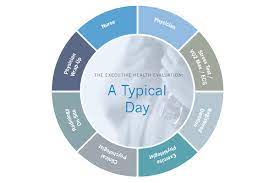Exploring the Benefits of Domestic Medical Tourism in the United States
The Rise of Domestic Medical Tourism in the United States
Medical tourism, once associated with traveling abroad for healthcare services, is now gaining popularity within the United States itself. Domestic medical tourism refers to individuals traveling within the country to seek medical treatment, often to access specialized care, cutting-edge technologies, or more affordable services.
One of the key drivers behind the rise of domestic medical tourism is the increasing availability of top-tier healthcare facilities and renowned specialists across different states. Patients are no longer limited to seeking treatment in their local area but can explore options nationwide to find the best possible care for their specific needs.
Cost also plays a significant role in fueling domestic medical tourism. With rising healthcare expenses and disparities in pricing between regions, patients are increasingly looking beyond their immediate vicinity for more cost-effective treatment options. By traveling to states with lower healthcare costs or facilities offering competitive pricing, patients can access quality care without breaking the bank.
Furthermore, advancements in telemedicine and virtual consultations have made it easier for patients to connect with healthcare providers across state lines. This technology allows individuals to receive expert medical advice remotely, facilitating informed decision-making about seeking treatment at a distant facility.
Domestic medical tourism offers numerous benefits to patients, including access to specialized treatments not available locally, reduced wait times for procedures, and the opportunity to combine medical care with leisure travel within the country. Additionally, patients can benefit from seamless coordination between healthcare providers when seeking treatment away from home.
As domestic medical tourism continues to gain traction in the United States, it is essential for patients to conduct thorough research on facilities and providers before making travel arrangements. Ensuring that the chosen facility meets high standards of quality and safety is paramount when seeking medical care away from home.
In conclusion, domestic medical tourism represents a growing trend that reflects the evolving landscape of healthcare accessibility and affordability in the United States. By embracing this trend responsibly and thoughtfully, patients can access a broader range of healthcare options while receiving top-notch treatment within their own borders.
5 Essential Tips for Navigating Domestic Medical Tourism Successfully
- Research and compare costs of medical procedures in different cities or states.
- Verify the credentials and reputation of healthcare providers before making a decision.
- Plan your travel arrangements well in advance to ensure a smooth experience.
- Consider factors like post-operative care and follow-up appointments when choosing a facility.
- Consult with your primary healthcare provider before embarking on domestic medical tourism.
Research and compare costs of medical procedures in different cities or states.
When considering domestic medical tourism, it is crucial to research and compare the costs of medical procedures in different cities or states. By conducting thorough cost comparisons, patients can identify more affordable options without compromising on quality care. Understanding the pricing variations across regions allows individuals to make informed decisions about where to seek treatment, ensuring they receive the best value for their healthcare investment. This proactive approach not only helps patients save money but also empowers them to access top-tier medical services that align with their budget and healthcare needs.
Verify the credentials and reputation of healthcare providers before making a decision.
When considering domestic medical tourism, it is crucial to verify the credentials and reputation of healthcare providers before making a decision. Researching the qualifications, experience, and track record of the medical professionals and facilities you are considering can help ensure that you receive high-quality care. Checking for accreditations, certifications, patient reviews, and success rates can give you confidence in your choice and peace of mind throughout your healthcare journey. By prioritizing due diligence in evaluating healthcare providers, you can make an informed decision that aligns with your health needs and expectations.
Plan your travel arrangements well in advance to ensure a smooth experience.
Planning your travel arrangements well in advance is crucial when embarking on domestic medical tourism. By taking the time to organize transportation, accommodation, and any necessary logistics ahead of time, you can ensure a smooth and stress-free experience. Booking flights or arranging for ground transportation, securing lodging near the healthcare facility, and coordinating any post-treatment care are essential steps to take before your medical journey. Proactive planning allows you to focus on your health and recovery without the added worry of last-minute travel details, ensuring a seamless and successful medical tourism experience within the United States.
Consider factors like post-operative care and follow-up appointments when choosing a facility.
When engaging in domestic medical tourism, it is crucial to consider factors beyond the initial procedure, such as post-operative care and follow-up appointments, when selecting a healthcare facility. Ensuring that the chosen facility provides comprehensive support throughout the recovery process can significantly impact the overall success and outcome of the treatment. By prioritizing facilities that offer thorough post-operative care and easy access to follow-up appointments, patients can enhance their recovery experience and maintain continuity of care for optimal results.
Consult with your primary healthcare provider before embarking on domestic medical tourism.
Before embarking on domestic medical tourism, it is crucial to consult with your primary healthcare provider. Your primary care physician plays a vital role in understanding your medical history, current health status, and treatment needs. By discussing your plans for seeking medical care in another location within the country, you can receive valuable insights and recommendations tailored to your specific health requirements. Your primary healthcare provider can offer guidance on selecting the right facility, coordinating care between providers, and ensuring continuity of treatment upon your return. Consulting with your primary healthcare provider before engaging in domestic medical tourism helps ensure that you make informed decisions that prioritize your health and well-being.



